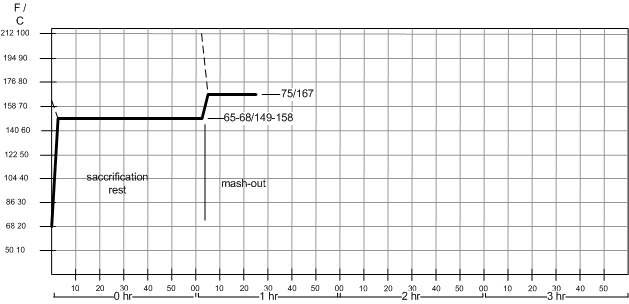Yup. Depends. You can make this really simple - pour water in, raise temp to a few degrees above 65C - maybe 68/69C, drop in your room temp cracked grains, stir and wait 90 minutes, pull bag - or you can get all scientific...
What gear have you got? Is it a big pot or a little pot, or an urn (or a bucket/dustbin/bath/laundry sink) - you might want to know how much heat you'll lose so you can compensate. You might be interested in grain to water ratios. What are you wanting to brew (for your first - you might want to make everything eventually!). You might bear in mind that a mash slightly below 65C will yeald more fermentable (simple) sugars and finish 'dry' after fermenting, slightly above 65C will give you less fermentables and give you a fuller bodied beer (though not necessarily 'sweeter'). Then again, a low mash (64C) with a lot of Crystal in the mix will give you a sweeter brew. Some BIAB folk are convinced that a protein rest (holding the mash at around 48C for 20/30 minutes) improves clarity by breaking down (chill haze) proteins (esp in grain bills containing a lot of unmalted stuff like flaked barley or wheat or oatmeal etc)- but you could argue that a protein rest using just fully modified grains (like any of the ale or pilsner malts) will break up proteins responsible for body and head retention giving you a thin watery beer... Then there's the 'mash out'. Most BIAB folk i'm guessing just use the one temp (around 65C) for mashing, some increase the temp to about 78C just after the mash time. A mashout stops all enzyme reactions in the mash and creates a more fluid wort. Many BIABers, finish up with a cloudy wort. Traditionally mashed beers are drained through the grainbed and therefore much of the protein/crap is filtered out - there are a couple of strategies but it's too much to type...
Now, have you considered pH? It's a mine field!!
You say you have BeerSmith; spend a bit of time setting up your gear and it should give you water temp and volume for mashing in, mash for 90 minutes @ 65C if you have the time and you should end up with a decent wort. If it's too dry when you come to drink it, think about increasing the mash temp - but consider the above factors...
Just keep it simple to start with and adjust according to the results, rather than reading shit loads and trying to predict what needs to happen.
--edit-- corrected temperature - 'mash at around 448'...






